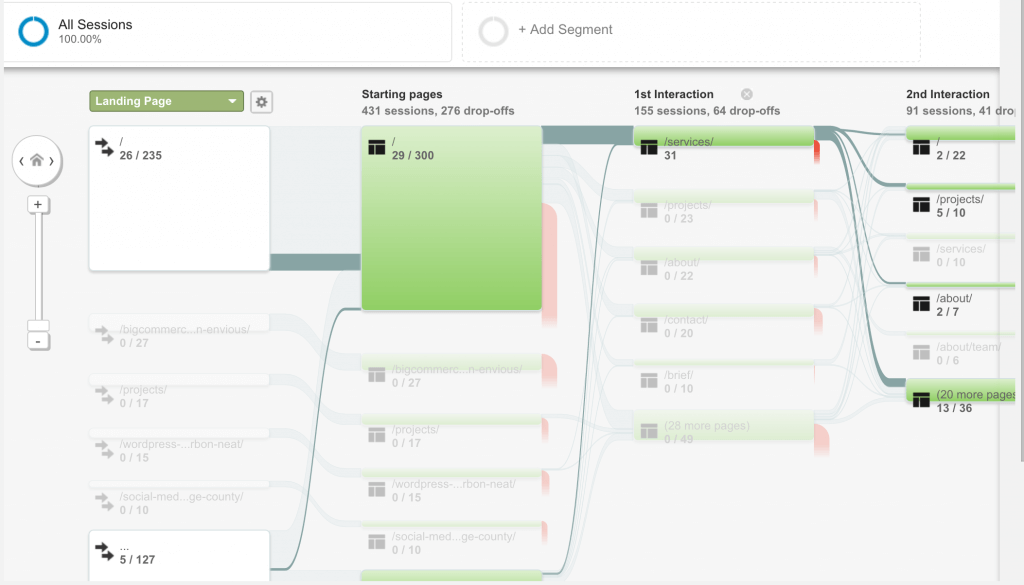How to Find the Right Keywords for Your Business

Most people I talk to who run a business know that getting found is an art and that it takes time and energy to make that happen; they also know that it takes real thinking and a good deal of research.
Why Does Keyword Strategy Matter?
Getting your keyword strategy strait is something that will take a lot of effort, but can be seen as a long-term investment in a business’s digital marketing efforts. A good keyword strategy promotes organic traffic and organic traffic is gold these days. Organic is a measure that your content is relevant and people are interested and click links that come up in their personalized search results.. Thus, Organic Search is arguably one of the most important tools available to you when it comes to marketing your website. Making sure you’re writing the right content for the right audience, using lingo and terms they use is paramount.
One can mess up their keyworded content quickly without a proper plan in place, which is why it’s always important to have a plan going in.
Examples of Poorly Conceived Keyword Strategy
- The site that needs to go up NOW! We know those types of sites; they have to go up asap, but there’s no budget for things like copyediting, often the client is left to do this themselves and that’s where things hit the fan. Often, research doesn’t go into the content that needs to be produced and on top of that all the content is forced through in a tight window, so the content may not (and typically never is) relevant or on-point with the brand message or aligned with possibly relevant keywords.
- No research is done – What I will never understand is how some businesses completely overlook this aspect of marketing their business online. They don’t research their market; they don’t find out where their potential or existing customers exist out in the wild, so they never go to where those clients are to hear the extent and breadth of conversation; there’s a complete detachment from the client and provider. Language means something and if you don’t know how your client/customers talk about your products or services you’re up a creek with only the shittiest of paddles!
- Infrequent Content Updates – The content might be pushing out regularly for a few days, then things start getting loopy, contributions become more and more sparse. You know how the rest goes. Rankings tank and competition eats your lunch with their timely content.
How do you get around this? First off, consistent content does take a village. That is, if you want to see continuous content stream to the web, you’ll want to make sure to empower everyone on your team to submit relevant content. Empower through encouragement and through training on the essential Blogging Tools you already use. Getting everyone on board and working toward the same thing is a quick way to shore up your content for weeks or even a bit longer.
so what do you need to know before you get started??
A satisfied customer is the best business strategy of them all. — Michael LeBoeuf
I’ll be straight with you. I don’t think you should go into your keyword strategy with the intent to create a strong keyword strategy. Wut!?
What I mean is that you should always lead with: “How can I create content that brings value to my audience; my potential customer?” That, in my opinion, is the best way to approach such strategies. How will you bring value to your customers?
Simple enough, right? I will tell you that starting with assumptions is bad, so, so bad! Let’s first start with real data. No, we know that Google kind of keeps the blinds drawn and hides the keywords that bring people to your website. So what else can we do?
great Keyword Selection Strategies
First, it helps to gain an understanding of what people are looking at on your site. Since keywords aren’t directly available to you. I’m going to suggest looking at your top-ranked/visited pages and also drill into how people get to your website.
If you know what pages or pieces of content people are visiting the most you can take a few actions based on that:
- You can set up an offer or coupon, or something like that, and target your most popular pages.
- You can generate more content based on the content that already performs well.
From the above image you can get a good sense of what piece of content is driving traffic. I’ll bet you could probably see how my above suggestions might work to create something of value for people visiting that content. Placing an ad is a possibility. What if the site owner did some sort of consultation? Giving a consulting discount might also be a good idea; there’s a million things you could do with a piece of magnetic content just like that. Beyond that first post, though, you can see that there are other valuable pieces of content that you can build on. If I were to come up with a strategy here, I’d definitely work from the top few posts talking about “texting.”
For sites that are a little more “average” your numbers might look like this:
These numbers are more basic, they’re our numbers. =)
If I were to come up with a strategy based off this information that would be more challenging. Clicking on any of the pages ranked there would give more insight as to where people are landing. Also, the Big Commerce content provides a potential opportunity, doesn’t it? We recently converted a site from Big Commerce to WooCommerce and we learned a lot there, hence the post. We could create a landing page for comparing the two platforms, which could open us up for more inquiries from customers looking to make a similar switch. Right? Right!
Last point on this is another GA tool to look at under the ‘Behaviors’ tab.
Behavior Flow — Is just a visualization tool that provides a visual overview how people navigate through your site and where people “drop-off.” It’s useful intelligence and that intelligence can provide you with actionable strategy points. Perhaps looking into new ways of keeping audiences engaged on the pages where they drop-off most. Or simply seeing where people eventually land. The people staying on your site are looking, hard, for something; that number will be smaller, but they are certainly more likely to “buy.”
This should be enough basic information to get you started at least. Thinking and planning what your keyword strategy is a good start. I’ll come back with another article on tools you can use to help you optimize your keyword choices and start drumming up that Organic Traffic.
Stay tuned!
Get Notified When We Publish New Content!
Join more than 2,500 people who get our marketing automation, business marketing, and WordPress news!



![[Series] SEO for Beginners | Way of the Tortoise](https://digisavvy.com/wp-content/uploads/2016/06/seo-basics-768x379.jpg)





